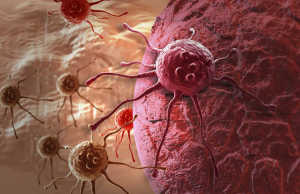
New York, In a major breakthrough, researchers have found that just breathing in extra oxygen could spurt the growth of tumour-fighting cells, thereby improving cancer treatment.
Supplemental oxygenation could improve cancer immunotherapy and shrink tumours by unleashing anti-tumour T-lymphocytes and natural killer cells, the findings showed.
“Breathing supplemental oxygen opens up the gates of the tumour fortress and wakes up ‘sleepy’ anti-tumour cells, enabling these soldiers to enter the fortress and destroy it,” explained Michail Sitkovsky, immunophysiology expert at the Northeastern University in the US.
However, he added, “if anti-tumour immune cells are not present, oxygen will have no impact.” “This discovery shifts the paradigm of decades-long drug development, a process with a low success rate,” Sitkovsky noted.
The findings build upon Sitkovsky’s previous research and represent the culmination of his life’s work.
In the early 2000s, Sitkovsky made an important discovery in immunology, which has come to inform his research in cancer biology.
He found that a receptor on the surface of immune cells—the A2A adenosine receptor—is responsible for preventing T cells from invading tumours and for “putting to sleep” those killer cells that do manage to enter into the tumours.
His latest work carried out in mice showed that extra oxygen changed the tumour’s environment so that immune cells could get inside and do their jobs.
“The anti-tumour effects of supplemental oxygen can be further improved by the natural antagonist of the A2A adenosine receptor, which happens to be the caffeine in your coffee,” Sitkovsky said.
The study appeared in the journal Science Translational Medicine.




 Driving Naari Programme launched in Chandigarh
Driving Naari Programme launched in Chandigarh






























